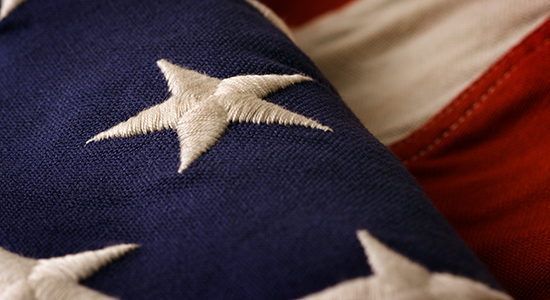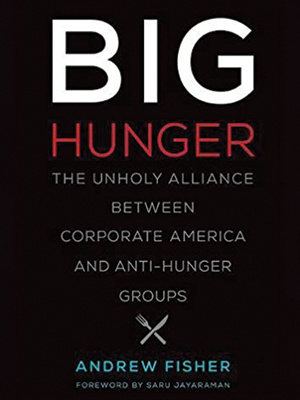Removing Certain Case Information from Court Website

In “Dismissed Criminal, Eviction, Other Cases No Longer Displayed On Court Website After Two Years” (WisBar InsideTrack, Feb. 21, 2018), Joe Forward reported newly appointed Director of State Courts Randy Koschnick is implementing recommendations on the length of time certain case information is publicly available online, even if a case is dismissed.
Several readers posted comments to the story online, many of which were published in the March 2018 Wisconsin Lawyer “Inbox” column. The story continues to draw reader responses, such as the one below.
Reader: This is actually a great idea. Hail to those who have worked diligently to make these changes to CCAP. Too often, in fact as often as once a day, someone calls my office and tells me that their dismissed case is keeping them from being hired somewhere, usually a low-skilled job. Our law allows background checks for criminal history, but CCAP often leads the uninformed to use dismissed charges to deny employment while keeping that basis a secret.
To the earlier commenter who worries that someone found not guilty was actually guilty, have you no belief in our system? Did you know that about 90 percent of all criminal cases result in conviction? The notion that this will allow guilty acquitted persons to make us less safe, while facially appealing, is a red herring. There are far more innocent or wrongly accused or “over-charged” folks whose dismissed cases are holding them back.
Chris Van Wagner
Christopher T. Van Wagner S.C., Madison
We Want to Hear from You! Submit a Letter to the Editor
Wisconsin Lawyer provides a forum for members to express ideas, concerns, and opinions on law-related subjects. Send comments to wislawyer@wisbar.org (include “Letters” in the subject line), or mail to Wisconsin Lawyer “Letters,” P.O. Box 7158, Madison, WI 53707-7158. Limit to 500 words. Writing guidelines available.
Connect With Us Online. Post comments to articles
online, and find us on
Facebook, Twitter, and LinkedIn.
Do Judicial Recusal Rules Threaten Due Process Guarantees?

In “Fear of Favor: Judicial Elections and Campaign Finance Law” (Wisconsin Lawyer,February 2018), authors Brendan Fischer and Nick Harken suggested that to preserve due process guarantees, the Wisconsin Supreme Court should revisit its recusal rules in light of changes to the state’s judicial campaign finance law. Their article addressed the lack of oversight created by Wisconsin’s new campaign finance law with respect to judicial campaigns and elections. The authors wrote, “Due process requires that litigants have their cases heard by a neutral and objectively unbiased decision maker, but that guarantee may be undermined by the new campaign finance regime, raising significant concerns about the wisdom of the law and the supreme court’s refusal to revisit its recusal rules in light of it.”
A reader posted a comment to the article online, and the authors wrote a response.
Reader: The authors say, “If elected, judges will know the sources of their financial support, but the public – and in particular, parties that may come before the judge – will not. Litigants will have no way of knowing whether opposing parties contributed significantly to the judge’s election through contributions to groups coordinating with the judge’s campaign.”
How is that so? Litigants can readily know which third-party groups have aligned with the philosophy of one judicial candidate or the other. The authors’ claim can possibly make sense only if we look through the third-party group, to its (major) funding sources. And even then the authors’ claim makes no sense. If the NRA’s Political Victory Fund runs an ad favorable to judicial candidate X, litigants will realize that Judge X is likely to treat Second Amendment protections seriously. Neither Judge X nor litigants before him will know whether I sent $0 or $10,000 to the NRA’s Political Victory Fund. (I am old enough to think that $10,000 is a big campaign donation and cheap enough that I have not sent anything near that much total in my life.) How am I going to get special treatment? Am I going to tip off Judge X by wearing my NRA lapel pin in court?
What the authors seem to fear is that third-party groups are going to open their books to favored candidates, so that Judge X can keep his list of who is naughty and who is nice, stay on cases where he should not, and thereby subvert the impartial administration of justice.
I do not say that such a concern is completely unfounded. One of our current supreme court candidates displays a pronounced disdain for impartiality. I do question whether the authors are aware of evidence of such practices having occurred to date. If so, let us address that. In the meantime, we should not base public policy on the assumption that a candidate knows, to the exclusion of the public, the identity of big-money donors to third-party groups.
John Gallo
Houseman & Feind LLP, Grafton
Authors’ Response to Reader: Thank you for the comment. Allow us to clarify a few points.
Under Wisconsin’s new law, judicial candidates may now coordinate directly with third-party groups as part of their campaign. The advantage of a campaign coordinating with a third-party group is significant and well-recognized in election law. See, for example, Heather Gerken’s 2014 Marquette Lawyer article.
Donations to a judicial candidate’s own campaign are capped and publicly disclosed, but third-party groups can accept unlimited and secret donations – and a third-party group’s spending is going to be of greatest value if it can be directed by the candidate’s campaign.
Brendan Fischer
Campaign Legal Center, Washington, D.C.
Nick Harken
McCoy Leavitt Laskey LLC, Waukesha
Big Hunger is a Societal Issue in America

In the January 2018 “Inbox” column, the Wisconsin Lawyer published Mr. Harry Griswold’s seemingly scathing critique of Ms. Emily L.R. Wilson’s review of Big Hunger in your November 2017 issue.
I would like to commend you for publishing both the review and Mr. Griswold’s critique. As a member of a mandatory bar, I appreciate your attempts to remain neutral.
Your neutral position is in sharp contrast to Mr. Griswold’s critique, which appears to contain more adjectives and adverbs than nouns.
His main issue is Ms. Wilson’s statement that “hunger as a societal issue is at the forefront of social consciousness.” In attempting to show that this statement is wrong, he cited food stamps, food pantries, and community dinners. To me, the existence of these services actually proves Ms. Wilson’s point. Hunger is a societal issue; so good people set up food pantries, the state supplies food stamps, and communities host dinners.
Regardless, Mr. Griswold fails to understand that Wisconsin Lawyer book reviews (and book reviews in general) are opinion. Ms. Wilson’s review is her opinion. Mr. Griswold is attacking Ms. Wilson’s opinion with red herrings (what does chemical addiction and crime have to do with hunger?) and name calling. He calls the book and Ms. Wilson “radical left outliers” and the book “ultra-left wing drivel” and implies that Ms. Wilson is not a “minimally sensible person.” I’m not sure what Mr. Griswold means by “radical left” and “ultra-left” (or why he needs two phrases to do so), but after reading Ms. Wilson’s book review, I do think she is a sensible person who is compassionate and reasonable.
Again, thank you for publishing both Ms. Wilson’s book review and Mr. Griswold’s “critique.” In the future, I’d prefer to read critiques of book reviews that are much less bombastic and more substantive.
William O. Jackson
ProHealth, Waukesha
Another Perspective on What It Is to Be a Lawyer

In “‘Happy Lawyer’ is Not a Contradiction” (Wisconsin Lawyer, January 2018), Deanne Koll explored why she thought a t-shirt screen-printed with the words “Happy Lawyer” was so funny and why she was so drawn to it. She wrote, “Was it because lawyers are categorically unhappy? Was it because no lawyer would ever wear that because – if we’re anything – we’re persistently pessimistic? Or, was it funny because even if we are happy, we can’t openly say so because we feel compelled to play into the scenario of overworked, tireless advocates?”
The article drew many reader comments, including one by Amy Flottmeyer that was published in the February 2018 “Inbox” column, titled “Let’s Be Honest About What Being a Lawyer Really ‘Is’.” Ms. Flottmeyer wrote about the realities of crushing law school debt, making hard choices about which monthly bills to pay, the toll the profession takes on human relationships, and the prevalence of substance abuse and mental health issues among lawyers. She wrote that she wished someone had been honest with her about what being a lawyer really “is.”
Ms. Flottmeyer also wrote, “All of that being said, our profession is vitally important. We assist the injured. We defend the accused. We are a constant check on the power of others. We have a unique ability to shine a light on the wrongs of society. We can speak for those who, without us, would have no voice.”
Her letter drew a reader’s response.
Reader: Oh my goodness, Amy! I was stunned by your letter. I loved being a lawyer and would still be doing it, but I’m a retired old man and realize that age has left me several steps behind.
When I first started, my mentor told me: “Every day is Halloween. You never know what is going to show up at your door.” Truer words were never spoken. Just about every day it was something new, another challenge. That’s what made it interesting … do I dare say exciting?
In my tenure there were only a few isolated instances of the job taking its toll, usually alcohol, which is not unique to the legal profession. But the lawyer sitting next to me is on the brink of coming unraveled!? I worked with and against countless lawyers and never experienced any coming unglued. And fighting for a living? We are advocates for our clients, each side debating its case. That was part of the challenge that made it interesting. Notwithstanding my obligation to argue my client’s case, it didn’t warp my personal values of right from wrong. Did I have some sleepless nights? Yes, but only because I was working all night. Yes, I worked long hours and had to travel a lot, again not unique to our profession.
I’m not in a position to address the student loan issue. When I went to law school, it wasn’t nearly as expensive. I worked summers as a teenager to save for school and worked a couple of jobs while in school to pay my way, but my impression is it’s too expensive for that to be feasible today. But yes, it takes time to get established financially but can be quite rewarding in the long run.
I know it’s not quite this simple, but it is only a job. Is it stress or the next challenge? I guess it depends on your perspective. I joke that as a lawyer it was my job to administer stress, not to receive it. What would I tell a prospective law student? First, my personal experiences. It took me to places, and I met people I could never have imagined. It was exciting and interesting. And yes, it was a challenging and demanding profession. But it was also very rewarding in every sense of the word.
L. John Fletcher
Ellison Bay
Few Role Models for the Would-be Trial Lawyer Today

In “How ‘Trial Lawyer’ Became an Oxymoron” (As I See It column, Wisconsin Lawyer, March 2018), Wood Foster Jr. wrote about the demise of jury trials in state and federal courts across the country. With fewer trials, lawyers who would be “trial lawyers” have fewer role models to learn from. Mr. Foster wrote about the impact of this phenomenon on the profession as a whole and explored the reasons there are fewer trials today.
Mr. Foster concluded, “I freely admit that the tone of my thoughts on this subject is curmudgeonly. I feel lucky to have been in active practice at a time when civil jury trials were still a reasonably regular feature of the trial practice. I understand that plenty of lawyers take a dim view of plaintiffs’ lawyers in general, but the underlying point is inescapable: many of us became trial lawyers because we grew up with a romanticized view of the history, value, and efficacy of the American jury system, in which randomly selected citizens played a major part in resolving disputes of all kinds. The role models … that we all observed as we grew up and thought about venturing into the legal profession have pretty much disappeared.”
A reader posted a comment to the article online.
Reader: For a J.D. to “lament” over a lack of jury trials makes as little sense as an M.D. lamenting the lack of surgery. What’s next – some lawyer complaining about too few lawsuits being filed? When people don’t file lawsuits it’s because they are able to resolve their disputes without them. And they don’t go to trial because, again, they are able to resolve the dispute without the court forcing a resolution.
Those of us who can actually speak with authority on the issue know that most disputes are settled without a lawsuit, and the filing of a lawsuit is often a tool used to motivate the defendant to negotiate an agreed-upon resolution to a complaint, and that bench trials are often, but not always, what the parties find to be in their best interests. Lawsuits, and trials, are like the guns that are in the hands of law enforcement personnel in that their true value is found, not in their direct use but, rather, in the fact that the threat that they pose prevents hostile behavior – and be very clear on the fact that a trial, jury or bench, is an exercise in hostility.
Roger Singh
Fredonia
Reader: I had at least three felony verdicts in 2016 alone. I know attorneys who probably had at least six-plus jury verdicts that year. And I saw an SPD try eight cases to verdict in 12 weeks while I was interning in 2013.
I don’t challenge the numbers, but I’m sure surprised by them. It would be interesting to see what percentage of attorneys are trying cases. It would have to be a very small number. A couple hundred lawyers? Statewide? Tops?
Justin Singleton
The Singleton Law Firm LLC, Waukesha
Reader: Using the one line [on Facebook] quoting a criminal statistic in a long article about civil trials going down misstates the whole article’s premise. The two categories are not comparable. The decline of civil trials is potentially worthy of discussion, the lack of criminal trials has been this way for decades, and it has nothing to do with public defenders versus private practice and everything to do with the fact that something like 97 percent of criminal cases resolve short of trial for reasons that benefit both the state and the defense. Perhaps if the State Bar spent some of that $500 per year we lawyers pay on supporting the “Civil Gideon” movement, we’d have more civil trials.
To be clear, my criticism is with the State Bar, not the author of the article. I think the author makes a lot of good points, but the article really has very little to do with criminal law.
Andrew Golden
Lagmann Inc.-East, Milwaukee
Looking for Cases that Raise Concerns About Accelerated Pretrial Procedures in Western District of Wisconsin

I am an attorney licensed to practice law in Illinois. I am researching a case that raises constitutional issues related to accelerated pretrial procedures commonly referred to as a “rocket docket.”
It is my understanding that the federal court in the Western District of Wisconsin has one of the fastest times from filing to trial in the country and that those procedures have been in place since the Hon. John Shabaz was first appointed as a federal district court judge. I suspect that constitutional challenges to the use of onerous accelerated pretrial procedures almost certainly have been made given that a “rocket docket” has been long in use in Wisconsin’s Western District. My goal is to find as many of them as possible.
Unfortunately, researching the substantive and procedural due process issues related to the use of an accelerated pretrial schedule has proven extremely difficult because, nationwide, the courts of appeals almost always issue unpublished opinions to reverse lower court decisions for constitutionally deficient procedural processes. Because the unpublished opinions are neither catalogued or indexed by the court of appeals nor searchable through Lexis or Findlaw, they are virtually invisible to researchers and litigants who most need to know of their existence.
I write to obtain Wisconsin lawyers’ advice in compiling a list of attorneys and cases wherein concerns over the court’s use of “rocket docket” procedures were raised, regardless of whether they were successful. If you can point me in the right direction, I would be grateful. Please respond to me directly, and thank you.
Paul Heinrich
